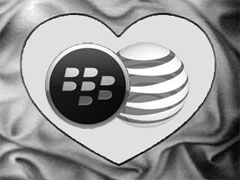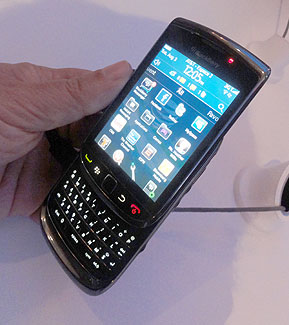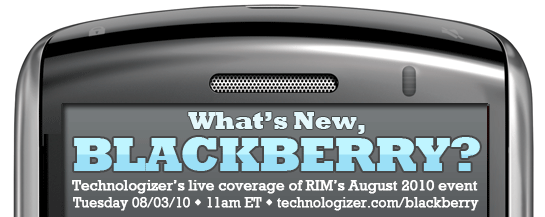 The first real reviews of RIM’s BlackBerry Torch are in. They make for an interesting contrast, because in many ways the point-by-point conclusions are similar–but there’s no consensus about whether the glass is half full or half empty.
The first real reviews of RIM’s BlackBerry Torch are in. They make for an interesting contrast, because in many ways the point-by-point conclusions are similar–but there’s no consensus about whether the glass is half full or half empty.
As usual, the last paragraphs of the reviews are concise summaries of the bottom lines in question…
Walt Mossberg of The Wall Street Journal isn’t a raving fan, but he’s pretty upbeat:
Overall, the Torch and the BlackBerry 6 operating system are good products that improve the BlackBerry experience considerably and bring the device closer to its newer rivals.
Joshua Topolsky of Engadget is disappointed:
The Torch seems sluggish, underpowered, and dated from a hardware design standpoint, and BlackBerry 6, despite its new features and polish, still feels woefully behind the curve. To call the Torch the “best BlackBerry ever” wouldn’t be an understatement, but unfortunately for RIM and the faithful, their best isn’t nearly good enough.
Matt Buchanan of Gizmodo is even less impressed:
Maybe RIM’s too big, too entrenched to build the kind of phone that’ll make people want a BlackBerry again. But they could’ve at least given the damn thing a better screen.
But Sascha Segan of PCMag.com says the phone has its place:
The state of the art in Android and Apple phones has vaulted into super-high-res screens, 4G radios, tens of thousands of apps, and glorious 3D games. The BlackBerry Torch doesn’t live in that world: it’s for people who live on e-mail, IM, Facebook and Twitter, for whom typing updates and messages is their number-one priority. For them, the Torch will be a shining light.
Nobody thinks the phone is transcendent–but come to think of it, I’m not sure if there’s ever been a smartphone based on a venerable existing platform that’s been greeted as a great leap forward. At least I can’t think of a Windows Mobile, Symbian, or Palm OS one that changed everything…
 Seriously, folks–these days, you can barely move your contact list to your new phone before coveting the next one.
Seriously, folks–these days, you can barely move your contact list to your new phone before coveting the next one.
 I doubt that anyone expects the clamshell phone to make a comeback, but that’s not stopping the Blackberry Style 9670, a flip phone that’s coming to Sprint on October 31.
I doubt that anyone expects the clamshell phone to make a comeback, but that’s not stopping the Blackberry Style 9670, a flip phone that’s coming to Sprint on October 31. The first real reviews of
The first real reviews of  Yet another research report shows
Yet another research report shows  Blackberry’s incoherent approach to video games never seemed like a problem before, but with
Blackberry’s incoherent approach to video games never seemed like a problem before, but with  It’s tempting to interpret every move AT&T makes in terms of its relationship with Apple, its status as the exclusive iPhone carrier in the US, and the implications of that exclusivity ending, as it will someday. It’s also dangerous to think that way, because the tea leaves are all too hard to read. Still, one fascinating sidelight of this morning’s
It’s tempting to interpret every move AT&T makes in terms of its relationship with Apple, its status as the exclusive iPhone carrier in the US, and the implications of that exclusivity ending, as it will someday. It’s also dangerous to think that way, because the tea leaves are all too hard to read. Still, one fascinating sidelight of this morning’s  “The toughest thing about success is that you’ve got to keep on being a success.” Irving Berlin supposedly said that, and the quote was on my mind this morning as I attended
“The toughest thing about success is that you’ve got to keep on being a success.” Irving Berlin supposedly said that, and the quote was on my mind this morning as I attended 